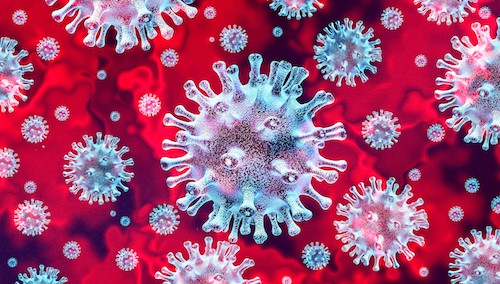
UK biotech company Synairgen has treated the first patient in a phase 3 trial evaluating its potential COVID-19 treatment SNG001.
SNG001 delivers an inhaled formulation of Interferon-beta-1a (INF-beta-1a) to the lungs directly via nebulisation. INF-beta is a naturally occurring protein that controls the body’s antiviral response.
Previous evidence has found that a lack of INF-beta production in the lungs could be linked to the increased susceptibility of at-risk groups who are more likely to develop severe respiratory symptoms as a result of viral infections.
Prior to the COVID-19 pandemic, Synairgen had been evaluating the drug as a treatment for COPD and asthma, although its focus has now shifted to investigating SNG001’s potential in COVID-19 patients.
The phase 3 trial, deemed an ‘Urgent Public Health’ study by the UK’s National Institute for Health Research (NIHR), will evaluate the benefit of SNG001 for the treatment of patients hospitable with COVID-19.
“Development of treatments like ours will remain necessary in cases where vaccines are not effective, for those who do not get vaccinated, and in case the virus mutates to the point where vaccines become less effective,” said Richard Marsden, chief executive officer of Synairgen.
“We believe this trial presents an opportunity for a significant UK scientific breakthrough and, if given the right support, our drug could rapidly assist with the global crisis,” he added.
In a phase 2 study of SNG001 involving 101 patients, 48 were given the drug and 50 were given a placebo each day. The COVID-19 patients who received the INF-beta-1a candidate had ‘greater odds of improvement’ on the World Health Organization’s (WHO) Ordinal Scale for Clinical Improvement (OSCI) on day 15 or 16.
In addition, patients receiving SNG001 treatment were more likely than those receiving placebo to recover to an OSCI score of 1 during treatment – characterised as ‘no limitation of activities’.
The findings, published in The Lancet, also found that over the 14-day treatment period, patients in the SNG001 group were more than twice as likely to recover compared to those in the placebo group.
Further, 58% of the patients in the SNG001 group had recovered on day 28, compared to 35% in the placebo group.
However, there was no significant difference between the treatment groups in terms of hospital discharge or time to hospital discharge, the study found.




